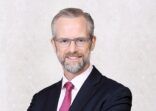The report by Cerulli Associates argued that global asset managers have a clear edge over indigenous firms in building a pan-Asian operation. Citing Mirae specifically, the report said despite the firm’s forays into India, China, and Taiwan, “its efforts to gather assets across the region have hitherto yielded unspectacular results”.
By comparison, global firms like Fidelity, JP Morgan and Franklin Templeton “have been able to adapt well to the fragmented Asian markets and successfully establish footholds across the region”.
Dale, however, believes his firm’s pan-Asian expansion is on track and the key factor is time in market rather than a firm’s global reach.
Young fund houses
In Asia, Mirae has offices in Korea, Hong Kong, India, Taiwan, China, Vietnam and an ETF operation in Australia. Dale explained that Mirae was founded in 1997 and until a few years ago has been very focused on Korea, where it is headquartered.
“To pull out Asia and say we are not doing a particularly good job is the wrong way of looking at it. Time in market is a factor. A lot of Asian fund management houses are comparatively young businesses that are strong in their home market but haven’t yet spread their wings.”
Using India as an example, he said Mirae entered India nine years ago and acknowledged that the operation has not gathered as much assets as other firms in the peer group.
“But Franklin Templeton, for example, has been in those markets for a much longer time than Mirae.
“India hasn’t become the biggest and best market. But our strategy has been to gain a foothold in markets where we think we may have an advantage in the future.”
Brand building
Dale admitted that a home-grown firm faces distinctive challenges when brand building. The perception of Asian fund managers tends to be that they are behind the times in their investment processes compared to the US and Europe, he said.
“The hardest part was getting processes to the point where we sit next to our international peers.
“Now our investment processes and teams are right up there with any global firm in our peer group. With the institutional market, we’re seeing the results of better working process come through in terms of flows coming into our SICAV range of funds.”
He said in the past 18 months, the AUM across Mirae’s 15 SICAV funds went to $1.9bn from $500m.
Another hurdle in Asia has been country bias. “If you’re a Korean firm in Asia, it’s very difficult to rebrand yourself as being an Asian firm. You’re considered Korean. If I try to sell a China fund to a Singaporean buyer, generally they will look at you and say you’re a Korean house and I’ll come to you if I need anything in Korea.”
His strategy has been to focus on marketing and distribution in Europe and the Middle East. “In Europe, clients are more accepting of the brand as Asian,” he said.
“Few indigenous Asian asset managers could say they were on par with global managers. That’s been the message for European buyers. We have a presence around the region and our investment teams are there. That has gone down well. These are highly-active, bottom up, concentrated funds that are doing quite well.”
Growing AUM globally
The firm is also building global operations. Outside of Asia, it has a presence in the US, UK, Canada, Columbia and Brazil, and a Dubai office is under consideration.
The firm’s AUM has grown to around $70bn from $50bn over the last two years, Dale said.
The SICAV range of funds, he said, have $1.9bn in AUM, up from $1bn in January. In addition, Hong Kong-domiciled funds are also planned and currently the firm is working to get the products through regulatory compliance.
Over the next three years, Dale expects the SICAV AUM to reach $5bn, depending on the investor appetite for global EM and Japan.
He believes the firm as a whole will add $15-$20bn in AUM over the next three years.
“There’s a push to make this more of a global enterprise, but it will take time.”
















